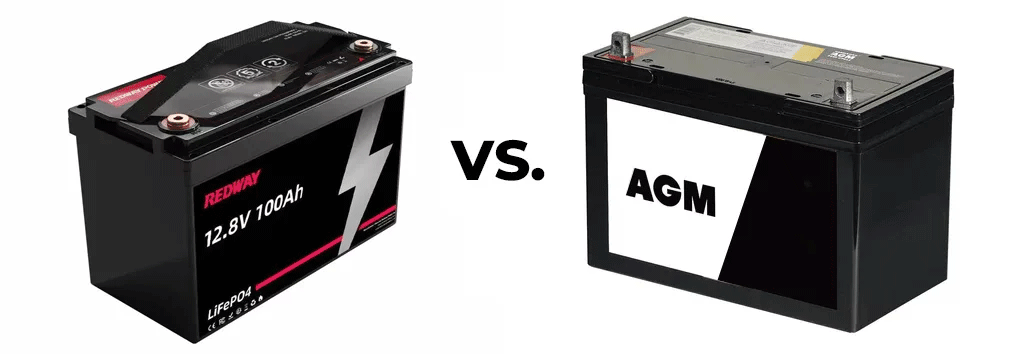A smart lithium battery contains a complete system that allows it to function efficiently. There are three fundamental levels for controlling the battery. You can utilize any control mechanism; nevertheless, the battery need is important. The first level of control is straightforward.
The second module level, on the other hand, is the protected circuit module (PCM), and the third level of control is a battery management system (BMS). This is the highest level of control and includes all of the capabilities needed for a balanced circuit.

#post_seo_title
What makes lithium batteries intelligent?
Several factors contribute to the intelligence of lithium batteries. If you want greater performance and outcomes, this is one of the greatest batteries you can get. It is also one of the most widely used batteries in consumer gadgets. They are also the most often used rechargeable and portable batteries.
Printed Circuit Board (PCB)
Lithium batteries, unlike normal lead batteries, have a printed circuit board. The printed circuit board is also known as the lithium battery’s heart. This circuit board enables for battery optimization and regulates battery performance.
Printed circuit boards safeguard the lithium battery against overcharging, discharging, and emptying. The printed circuit board protects the lithium battery pack from damage and explosion while also protecting the battery.
Ratios of energy to weight
When comparing the energy-to-weight ratio of lithium and other rechargeable batteries, lithium batteries considerably outperform other batteries. Nowadays, lithium batteries have the highest energy density. Lithium batteries have an energy density of 260-270 Wh/kg.
The energy density of a lead acid battery, on the other hand, ranges between 50 and 100 Wh/kg. Because the difference between the two is so great, the lithium battery is viewed as superior. In terms of energy-to-weight ratio, lithium batteries outperform nickel-cadmium batteries.
Very High Open Circuit Voltage
The voltage of the battery when it is not connected to any load is known as open circuit voltage. The open circuit voltage of lithium batteries is higher than that of other batteries. The open circuit voltage is critical in detecting battery faults. It aids in the battery’s diagnosis. Batteries have a feature that is common to all batteries: self-discharge.
Battery self-discharge increases over time, causing the open circuit voltage to decrease. A high open circuit voltage indicates that the battery is in good condition. Because of its sluggish depletion rate, lithium batteries have a high open circuit voltage.
What exactly is a smart BMS battery?
The BMS is in charge of battery management, or looking after the battery. The BMS also installed all new batteries when they were installed, as it benefits the battery in several ways. Tesla, the electric vehicle manufacturer, employs BMS in all of their vehicles. Many things must be worked out for a BMS to be smart. The BMS should keep the battery from overheating or working too hard.
Protection
The first and most important thing a smart BMS should do is safeguard the battery from overworking and working out of its way. The protection also includes safeguarding the battery against overcharging and overdischarge.
The BMS offers multiple degrees of protection, and each level protects the battery from surges by permitting faster discharge. The BMS also protects the battery from overcharging and overdischarging damage.
Maintenance
Battery maintenance is critical, and most of the time, poor battery management results in poor battery performance and a higher self-discharge rate. The BMS keeps the battery running by keeping the temperature stable.
It regulates the temperature of the battery by opening and closing several valves, providing better and more powerful performance.
Monitoring BMS keeps track of the battery’s status. The BMS monitors the temperature, voltage, battery health, current, and balancing cell state. BMS monitors all of these because these items cause the majority of battery problems.
The temperature has a significant impact on battery performance. When the temperature rises too high, the battery’s self-discharge rate rises and it functions poorly. All of these things are monitored and maintained by the BMS.
Is a BMS required for a lithium ion battery?
The BMS is critical in lithium-ion batteries since these batteries are critical and can exacerbate problems if they are misused or overused. The BMS assists in the battery’s maintenance and protection from many circumstances.
Overuse Prevention
If the lithium battery is overcharged, it will explode or catch fire. As a result, BMS is critical since it will protect it from this and will not allow the battery to be overworked and work out of its way. Every electrochemical call is monitored by the BMS to prevent misuse and the battery from exploding.
Essential in EV
All EVs use lithium batteries, and BMS is required, just like in EVs. Many things in electric vehicles must be maintained and safeguarded. A single flaw in an EV battery might cause widespread havoc. In an EV, the temperature of the battery should be regularly checked and maintained; failure to do so may result in an explosion. A BMS should be installed to avoid this from happening.
Maximum Efficiency
A BMS is required to ensure optimum and optimal performance. The BMS regulates the temperature and guarantees that the battery operates at peak performance. BMS also prevents the battery from being overused, allowing the battery to be utilized within limits. A lithium battery’s performance can only be optimized if it has a management system, which the BMS provides.
Conclusion
Batteries have gone a long way and continue to evolve on a daily basis. Nowadays, lithium batteries are the greatest batteries since they operate well and offer many useful characteristics. The batteries found nowadays are hazardous and must be maintained and monitored. A management system is required for this.


